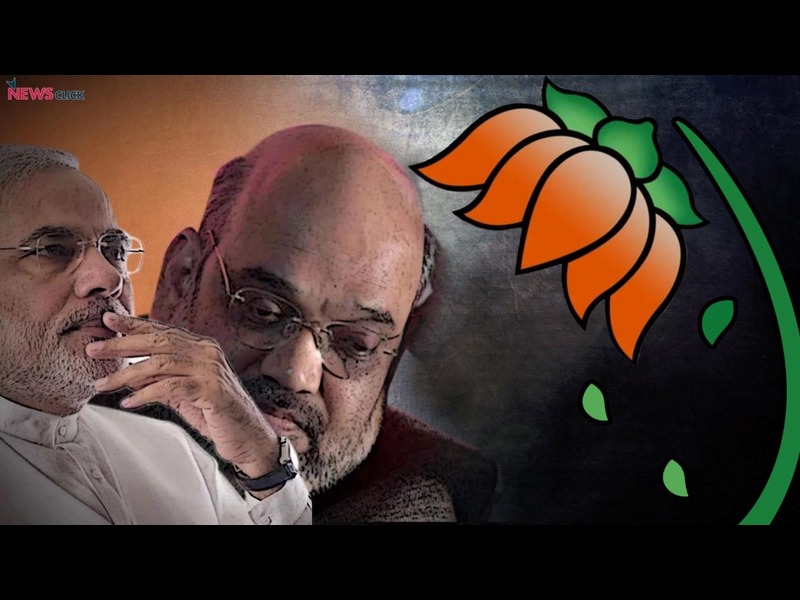Hydkhabar analysed the situation after BJP losing power. The consequences and impact is clearly visible on the leadership. The political analysis clearly tells the truth of tomorrow – the formation of new government from Modi raj.
In the realm of Indian politics, speculation often sparks intense debate and analysis. What if the Bharatiya Janata Party (BJP) were to lose power in the Lok Sabha election? Such a scenario would undoubtedly have significant repercussions, not only for the party itself but also for its key figures, Prime Minister Narendra Modi and Home Minister Amit Shah.
Potential Consequences:
Political Landscape Shifts
A BJP defeat would herald a seismic shift in the political landscape of India. The party has been a dominant force in national politics for years, and its loss would create opportunities for other parties to rise to prominence. Regional parties might gain more influence, altering the dynamics of power-sharing and coalition politics.
Modi’s Legacy
For Narendra Modi, a loss in the election would mark a pivotal moment in his political career. As one of the most influential figures in contemporary Indian politics, his legacy would undoubtedly be scrutinized. While his supporters may view his tenure favorably, critics would likely highlight issues such as economic challenges, social unrest, and questions of democratic norms.
Amit Shah’s Role
Amit Shah, often considered the BJP’s chief strategist, would face questions about the party’s electoral performance under his leadership. Despite his formidable reputation as an organizer and tactician, a loss in the election could lead to internal party discussions about future strategies and leadership.
Pros and Cons
Pros: Renewed Opposition Strength: A BJP loss could invigorate the opposition, leading to a more robust parliamentary democracy with increased checks and balances.
Policy Reevaluation: A change in government could prompt a reevaluation of policies and priorities, potentially leading to reforms in areas such as economic management, social welfare, and foreign relations.
Democratization of Power: Greater competition among political parties could foster a more inclusive and participatory political system, empowering marginalized voices and communities.
Cons:
Political Instability: A BJP defeat might result in a period of political uncertainty and instability, as parties vie for power and alliances are reshaped.
Policy Disruption: The transition between governments could disrupt policy continuity, leading to delays in decision-making and implementation, which may impact economic growth and social welfare programs.
Identity Politics Intensification: In the absence of a dominant national party like the BJP, identity-based politics and regionalism could become more pronounced, potentially exacerbating social divisions and hindering cohesive governance.
While the hypothetical scenario of the BJP losing power in the Lok Sabha election raises numerous questions and uncertainties, it also offers opportunities for reflection and growth within India’s political landscape. Narendra Modi and Amit Shah, as key figures within the BJP, would undoubtedly play critical roles in navigating the party through such a challenging transition. Ultimately, the consequences of such an outcome would reverberate far beyond the realm of electoral politics, shaping the future trajectory of Indian democracy. #hydkhabar

